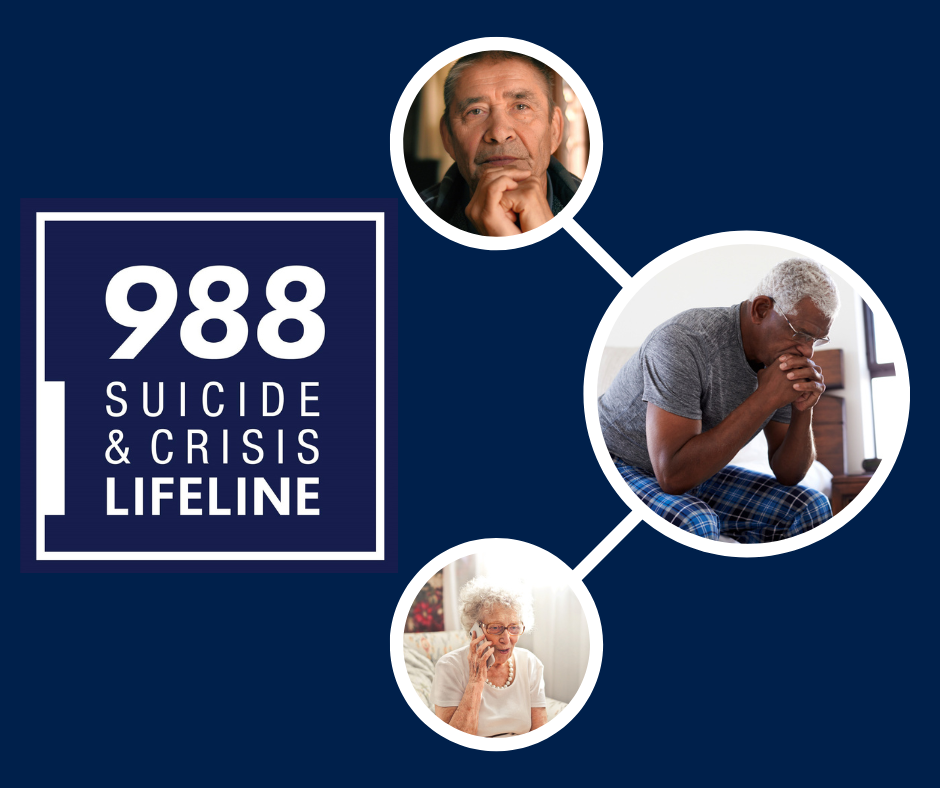Contributed by Ethan R. Kent, MSW, LCSW, LSCSW, CAGCS
Program Director | Senior Life Solutions @ Excelsior Springs Hospital
September is National Suicide Prevention Awareness Month and community organizations are coming together to show their support. Excelsior Springs Hospital’s Senior Life Solutions aims to raise awareness on the misconceptions of suicide and to spread hope and educational resources to people affected by suicide.

According to the American Foundation for Suicide Prevention (AFSP), there are an average of 130 suicide deaths per day and an estimated 1.2 million suicide attempts in 2020. Each year during September, we join with others across the country to help bring awareness to suicide and encourage education in hopes of preventing suicide. Suicide Prevention and Awareness Month is a chance to take time to stop and assess yourself and those around you to ensure those who need help have access to it, but what do you do if someone you love may be having thoughts of suicide?
[Let’s] learn about #BeThe1To’s five evidence-supported action steps to take if someone you know is in crisis.
- ASK.
- Asking “Are you thinking about suicide?” communicates that you’re open to speaking about suicide in a non-judgmental and supportive way. Asking in this direct, unbiased manner, can open the door for effective dialogue about their emotional pain and can allow everyone involved to see what next steps need to be taken.
- BE THERE.
- Being there for someone could mean physically being present, talking on the phone, through video chat, or any other means of showing support. It is very important that you do not commit to things you are not willing or able to accomplish and ensure that the ways you say you will provide support happen.
- KEEP THEM SAFE.
- If you have determined your loved one is thinking about suicide, it is then important to establish immediate safety. This can be done by asking questions like, “Have you tried to do anything to harm yourself?” “Do you have a specific, detailed plan?” If so, “what is the timing and access to the method?” Knowing the answers to each of these questions can help you determine the level of danger the person is in. For example, the more specific steps they have in place for their plan, the higher their severity of risk is.
- HELP THEM CONNECT.
- Connect them with the new 988 Lifeline and the Crisis Text Line’s number 741741. Help them explore their options. Have they seen a mental health professional in the past? If so, could they see them again? What mental health resources are available in their community? Do they have a safety plan in place?
- FOLLOW UP.
- After you have connected them to the immediate support they need, it’s important to follow up to see how they are doing. Following up allows them to ask for more help if needed and gives you an opportunity to do anything you said you would do but haven’t gotten the chance to do yet.
#BeThe1To reminds us that suicide is not inevitable for anyone. By starting the conversation, providing support, and directing help to those who need it, we can prevent suicides and save lives.
If you or someone you know is in an emergency, call 911 immediately. If you are in crisis or are experiencing difficult or suicidal thoughts, call or text the Suicide and Crisis Lifeline at 988.
Excelsior Springs Hospital’s Senior Life Solutions is a program designed to meet the unique needs of individuals typically 65 and older, experiencing depression or anxiety related to life changes often associated with aging. If you want more information, education, or discuss support, please call 816-629-2629 or visit Senior Life Solutions – Excelsior Springs Hospital (eshospital.org).
